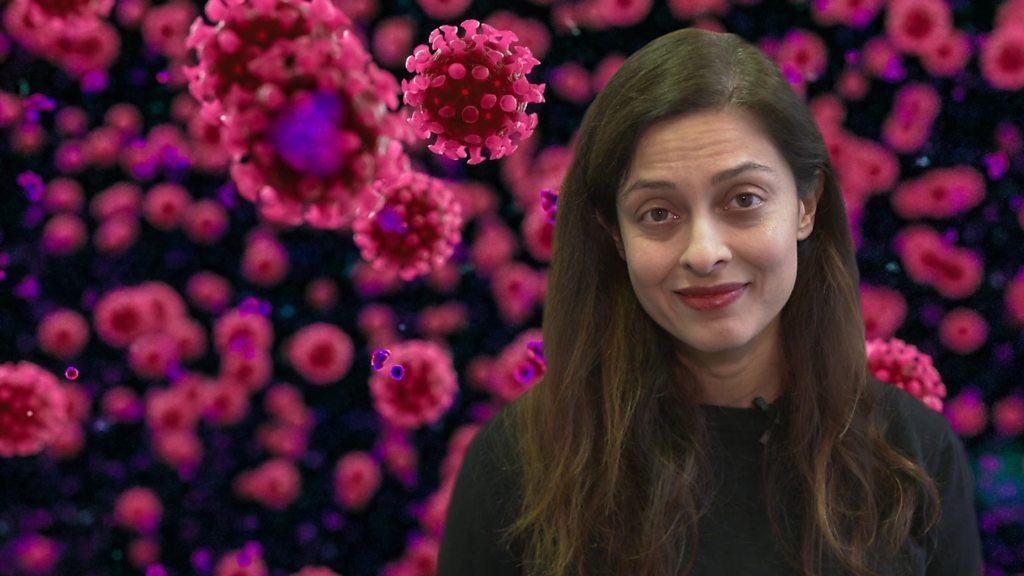Coronavirus: How did it start, what are the symptoms and other FAQs
- Published
- comments
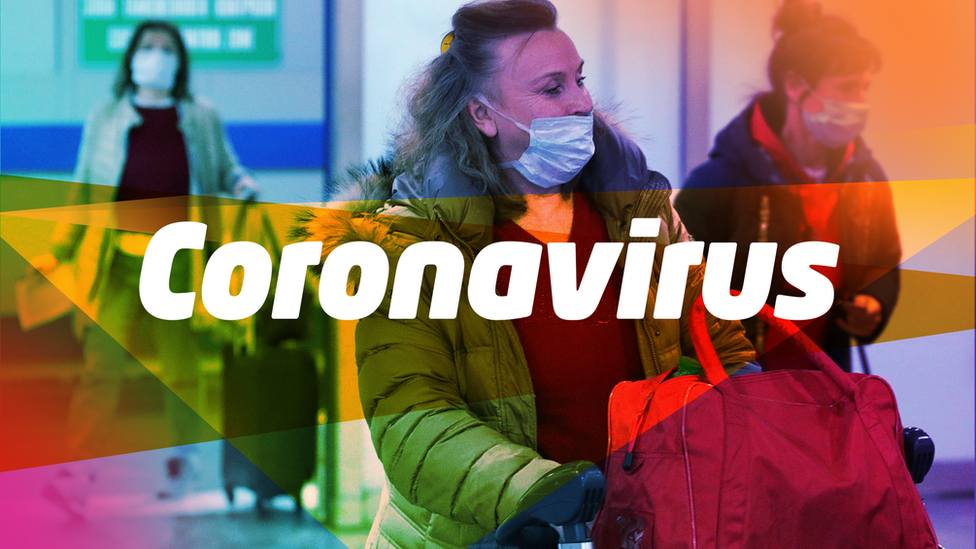
With lots in the news every day about the coronavirus, it can be difficult to keep up with it all.
It can also be confusing to know who to listen to and where to go to find out more.
Well we've checked the official advice and spoken to a number of experts.
Here are answers to some of the most frequently asked questions about the coronavirus and the disease it causes, called Covid-19.
How did coronavirus start?
It is thought the disease originated at an animal market in the city of Wuhan in China, where it was transferred to a person.
The World Health Organization (WHO) says: "Covid-19 is the infectious disease caused by the most recently discovered coronavirus. This new virus and disease were unknown before the outbreak began in Wuhan, China, in December 2019."
Dr Chris from Operation Ouch said: "As a species, human beings destroy ecosystems and we often farm animals in quite cruel, crowded conditions. And those two things expose us to really dangerous viruses from animals.
"So, as a species, we all need to accept some responsibility and wake up to the fact we need to treat our planet better but, there is no one person or culture that we need to blame here."
Dr Chris and Xand: How to be your best self during lockdown
What are the symptoms of coronavirus?
The most common symptoms of Covid-19 are fever, tiredness, and a dry cough. Loss of smell or taste are among the other symptoms people are advised to look out for.
In the UK, people are being advised to stay at home for seven days if they have either a high temperature (they feel hot to touch on their chest or back) or a new, continuous cough - or 14 days if they live with other people.
"Everyone who gets symptoms gets a fever," says Operation Ouch's Dr Xand.
He added: "Most of the people who get a fever get tired. A lot of the people who get tired get achy muscles and a lot of those people get a cough. One of the things that doesn't seem to be very common is sneezing."
The WHO says the illness it causes is "generally mild, especially for children and young adults", but around one in five people who get the virus become seriously ill and develop difficulty breathing.
Dr Chris added: "If you have difficulty breathing, go to hospital."
How does the virus spread?
Coronavirus spreads from person to person by droplets from the nose or mouth from coughing or sneezing. People can also catch it by coming into contact with contaminated surfaces or skin.
The WHO says "other people then catch Covid-19 (coronavirus) by touching these objects or surfaces, then touching their eyes, nose or mouth".
This is why people are being encouraged to regularly wash their hands with soap and to not go too near to people who have it or wear face coverings in busy places.
"It's very unlikely it can be spread through things like packages or food", according to NHS advice.
How long does coronavirus last?
If you get coronavirus it takes five days on average to start showing the symptoms, scientists have said, but some people will get symptoms much later than this.
"So we don't know that information for everyone, but it seems to be like a few weeks on average, something like that," Dr Xand said.
"People can be very ill for a few weeks and then they gradually get better," he added.
The UK government wants everybody to stay at home if they can to stop the virus spreading, and take social distancing measures when they do go outside - for example, grown-ups who cannot work from home.
But it especially wants people to self-isolate if they have symptoms.
As virus expert, Dr Jake Dunning, explained, it basically means staying at home so the virus can't spread to other people.
It also means other people can't come round to visit you while you're self-isolating.
According to medical experts, 99% of people will make a full recovery, as their immune system eventually defeats the virus.
How can we limit the spread of the coronavirus?
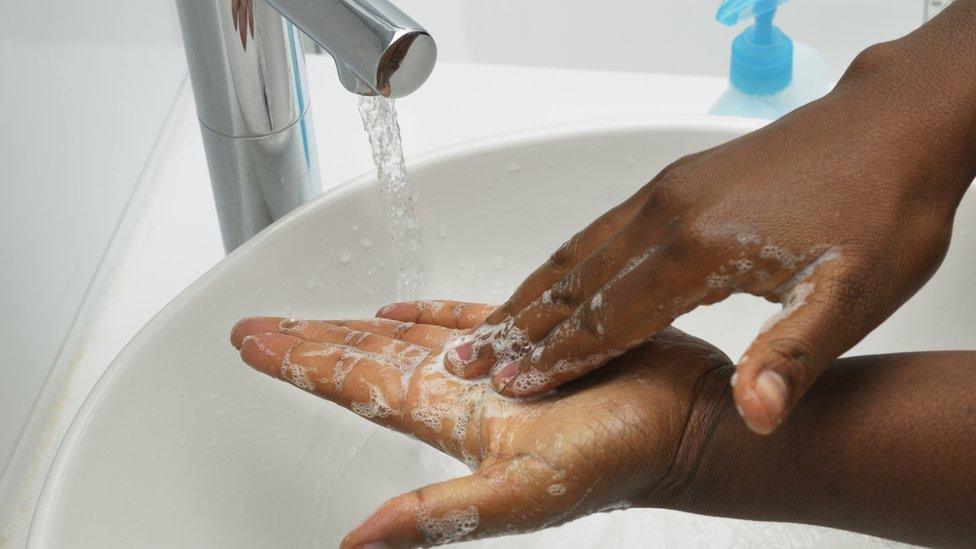
There are lots of things that everyone can do to help limit the spread of the coronavirus.
NHS advice says:
Regularly wash your hands with soap and water for at least 20 seconds
When you cough or sneeze, cover your mouth and nose with a tissue or sleeve (not your hands!)
Try to avoid close contact with people who are unwell
As Dr Xand explained, people should stay at home if they're feeling poorly, especially if they have a temperature, a cough, or are feeling achy.
The WHO says keeping at least one metre apart from someone who might be coughing or sneezing will help stop the coronavirus spreading. In the UK, people are advised to stay two metres apart, though this changed to 1m in Northern Ireland in June and in England from 4 July.
WATCH: How to wash your hands
When will coronavirus end?
At the moment, we don't know. It's a new virus, so experts are still trying to find out as much as they can about it.
Scientists are working on coming up with a vaccine for it though. Once they have created a vaccine they will be able to treat it effectively.
Trials of vaccines are already under way and most experts think a vaccine is likely to become available by mid-2021.
Do hand gels work?
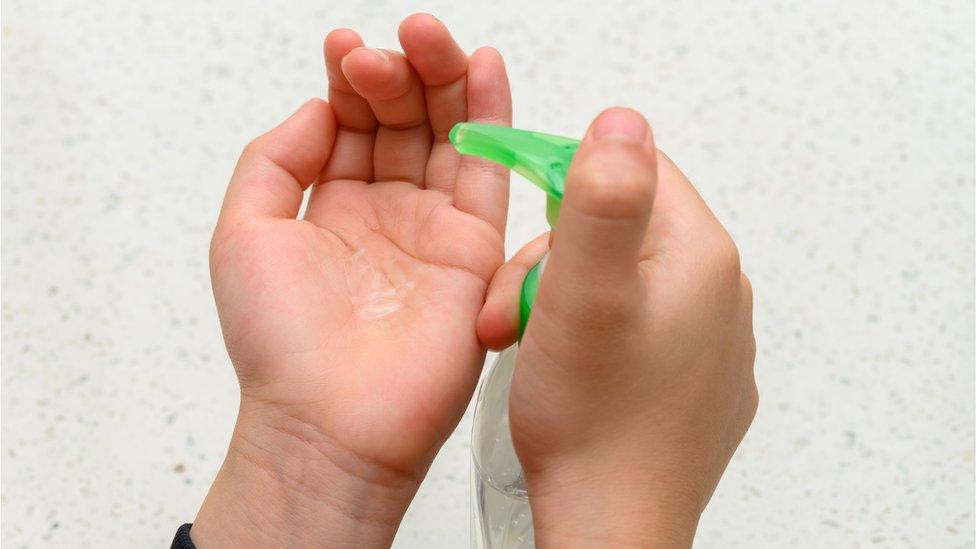
Sometimes you might not be able to wash your hands with soap and water when you want to, for example while out and about, or while using public transport.
Professor Devi Sridhar told Newsround: "Hand gels are a fantastic way to clean your hands but they're not as good as soap and water."
NHS advice says people should use hand sanitiser gel if soap and water are not available.
Can pets get coronavirus?
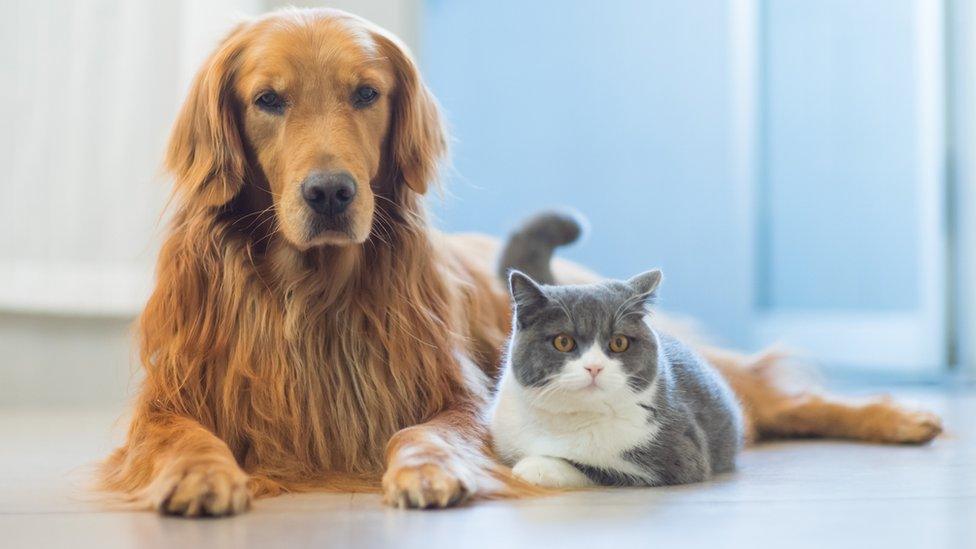
There is some evidence that pets can be infected with the coronavirus - but it is thought they cannot infect people with it.
However, it's still important to protect yourself from bacteria that can pass between pets and humans - that means washing hands.
British Veterinary Association president Daniella Dos Santos has suggested another reason why people should practise good hand hygiene if they have animals.
She explained: "An animal's fur could carry the virus for a time if a pet were to have come into contact with someone who was sick."
Doctor James is a vet on CBBC show The Pets Factor, and he's been answering questions about whether animals can catch the virus, or even if they should wear face masks for protection.
Coronavirus: How to keep pets safe
- Published19 May 2020

- Published5 May 2020
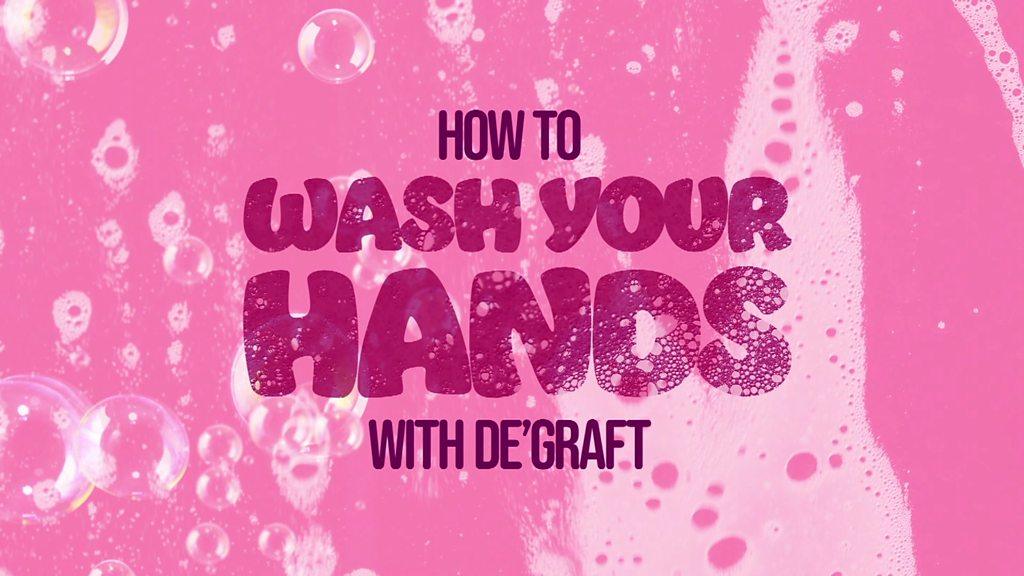
- Published13 March 2020
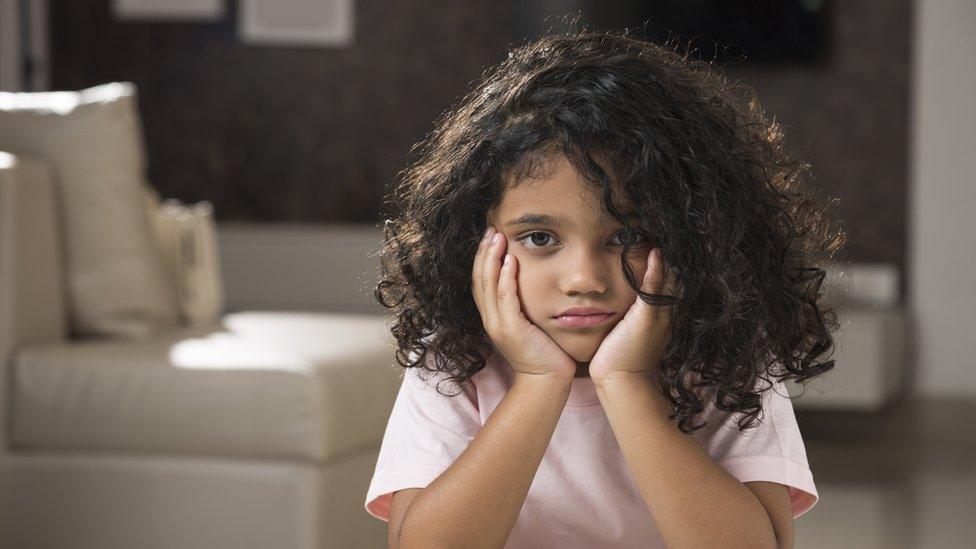
- Published27 August 2020


